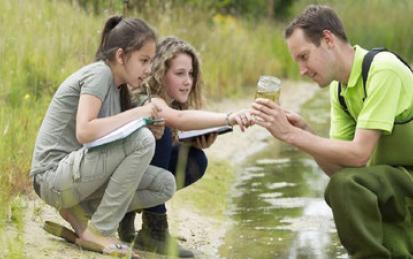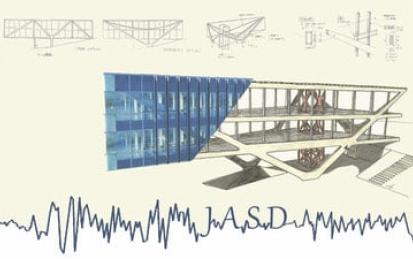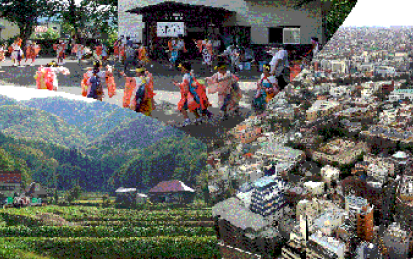

Our Courses

Sustainable Urban Development
Learn why cities are key in resolving global urbanization and sustainability challenges and how you can engineer tomorrow’s cities today.
-
Course by

-
 Self Paced
Self Paced
-
 32
32
-
 English
English

Transformative Citizen Science for Sustainability
Go beyond citizen-gathered data. Learn to design projects that actively mobilise citizens, policy makers and scientists to improve human and ecological wellbeing. In this advanced course, world leading experts from Wageningen University & Research share key principles and practices for Transformative Citizen Science for Sustainability. Join us and develop your own ideas about citizen science.
-
Course by

-
 Self Paced
Self Paced
-
 English
English

Japanese Architecture and Structural Design
In this revised course, fundamental and modern approaches to Japanese structural design will be explained using historical overviews and Tokyo-Tech’s campus buildings as case studies. Learners will be able to interpret and apply seismic design concepts like energy-dissipating braced frames, spine frames, seismic retrofit, seismic isolation and seismic design of spatial structures.
-
Course by

-
 Self Paced
Self Paced
-
 English
English

Feeding a Hungry Planet: Agriculture, Nutrition and Sustainability
How do we create a healthy and sustainable diet for the growing world population?
-
Course by

-
 Self Paced
Self Paced
-
 English
English

Sustainability & Major Sport Events: Implementation
Learn the best practices and tools you need to plan and implement a sustainable major sport event.
-
Course by

-
 Self Paced
Self Paced
-
 English
English

Sustainability & Major Sport Events: Principles
Learn the five pillars of sustainability and how to apply these when planning and hosting a major sport event.
-
Course by

-
 Self Paced
Self Paced
-
 English
English

The Meat We Eat
The Meat We Eat is a course designed to create a more informed consumer about the quality, safety, healthfulness and sustainability of muscle foods and address current issues in animal agriculture in developed and developing countries.
-
Course by

-
 Self Paced
Self Paced
-
 14 hours
14 hours
-
 English
English

Impact Measurement & Management for the SDGs
How can businesses and investors help fill the multi-trillion-dollar gap needed for sustainable development? Simply put: by incorporating sustainability and social impact factors on people and planet into management decisions. Through this course, anyone can learn to improve their organization's practice of impact measurement and management and align their ESG or impact activities and reporting with emerging global standards. Impact Measurement and Management for the SDGs is a collaboration between UNDP SDG Impact and the award-winning team at CASE at Duke University.
-
Course by

-
 Self Paced
Self Paced
-
 9 hours
9 hours
-
 English
English

Sustainable Cities and Communities
In this specialisation you will learn how to drive change in cities and communities towards sustainable, climate friendly, just, healthy and prosperous futures, and you will boost your career with new knowledge, understanding and skills for navigating urban transformations. This specialisation brings together a series of cutting-edge courses with world-leading teachers on cities, communities, sustainability, governance and innovation. This specialisation is offered by the IIIEE at Lund University and the City Futures Academy – an online learning community on urban transformations.
-
Course by

-
 Self Paced
Self Paced
-
 English
English

Employing Best Practices for Improving the Usability of LookML Projects
This is a self-paced lab that takes place in the Google Cloud console. In this lab, you will learn how to improve the usability and sustainability of LookML projects.
-
Course by

-
 Self Paced
Self Paced
-
 1 hour
1 hour
-
 English
English

Introduction to Environmental Science
To understand current environmental problems, we need to consider physical, biological & chemical processes that are often the basis of those problems. This course will give you the skills necessary to address the environmental issues we are facing today by examining scientific principles and the application of those principles to natural systems.
-
Course by

-
 Self Paced
Self Paced
-
 English
English

Energy and Environment
This course deals with both renewable and non-renewable energy. By applying scientific principles and considering real-world examples, you will examine: 1. Non-renewable fossil fuels with a focus on coal, petroleum and natural gas and the benefits and consequences of using each. 2. Renewable fuels such as wind and solar and identify that even renewable “green” energy sources have impacts as well as benefits. 3. Biodiversity and global change, which are the integrating units of environmental science. Additionally, you will explore answers to the following questions: 1.
-
Course by

-
 Self Paced
Self Paced
-
 23 hours
23 hours
-
 English
English

Population Health: Alternative Payment Models
The way we currently pay our care providers lead to suboptimal outcomes and unnecessary spending. Consequently, we fail to maximize the value of our health care services. We need to change provider payment models in order to keep health care systems financial sustainability. Doing nothing is not an option. But the question is, how do we do it? During this course, we will discuss the rationale for payment reforms and dive into the key design elements of Alternative Payment Models (APMs) and how they change care provider incentives.
-
Course by

-
 Self Paced
Self Paced
-
 20 hours
20 hours
-
 English
English

Sustainability Analyst Fundamentals
The ASU Sustainability specialization introduces the role of a sustainability analyst, assesses sustainability challenges that face the planet and employers, and equips learners with the foundational skills needed to address these challenges.
-
Course by

-
 Self Paced
Self Paced
-
 English
English

Sustainable Consumption and Health
This course is an introductory and foundational course on sustainable consumption and health. In the first part of this course, we briefly review definitions of sustainability and the relationship between the three dimensions of sustainability and the UN-Environment Sustainable Environment Goals (SDGs), target and indicators. We then look at frameworks, indicators and footprint requirements to adequately measure sustainability, offering the opportunity to the participants to assess their own carbon and environmental footprint and make recommendation on how to reduce it.
-
Course by

-
 Self Paced
Self Paced
-
 14 hours
14 hours
-
 English
English

Managing Responsibly: Practicing Sustainability, Responsibility and Ethics
Managers are increasingly confronted with issues of sustainability, responsibility and ethics. Managing responsibly is an integrative approach to sustainability, responsibility and ethics, which allows you as a manager to deal competently with such challenges. This course will facilitate your learning process to engage in changing practices to make them more sustainable, responsible, and ethically informed. We will first introduce the context of the trend towards responsible management practices (week 1).
-
Course by

-
 Self Paced
Self Paced
-
 22 hours
22 hours
-
 English
English

Worldviews - From Sustainability to Regeneration
This MOOC is the first part of an interconnected series of four MOOCs on Designing Resilient Regenerative Systems (DRRS) which bring together science, design and transformative praxis as a fluid, intervention-based and synergistic process for addressing complex challenges. This is explored through extending our worldviews, reframing complexity, designing as nature, activating our minds through physical movement, and connecting with new communities of practice.
-
Course by

-
 Self Paced
Self Paced
-
 English
English

Climate Change, Sustainability, and Global Public Health
The third course of the Impacts of the Environment on Global Public Health specialization will introduce you to two major environmental health challenges facing the world today. The first is climate change –the preeminent threat to public health today, and a threat that will impact every human and ecosystem on the planet. We will evaluate the causes and impacts of climate change, as well as policies and approaches that can be used to reduce the impacts of climate change on human health.
-
Course by

-
 Self Paced
Self Paced
-
 17 hours
17 hours
-
 English
English

Population, Food, and Soil
This course explores the population-environment relationship. In this course, you will learn about the human population and the ways in which changes in the population affect the environment. Agriculture, soils, and the environmental implications of eating meat, vegetables, local, organic, sustainable, industrial, and other types of food are discussed too. We explore questions such as: 1. How many people live on Earth right now? 2. What is the carrying capacity of Earth? 3.
-
Course by

-
 Self Paced
Self Paced
-
 16 hours
16 hours
-
 English
English

Sustainable Digital Innovation
Two of our most profound business challenges are digitalization and sustainability. They are rapidly changing the way we are doing business both today and in the future.
-
Course by

-
 Self Paced
Self Paced
-
 13 hours
13 hours
-
 English
English

Compliance and Risk Management
This course introduces risk management and compliance strategy. You will examine risk assessment and learn how to have a risk management mindset. You will learn different types of compliance, including legal and safety compliance, and its role in operational policies.
-
Course by

-
 Self Paced
Self Paced
-
 English
English

Capstone Chemistry and Technology for Sustainability
This Capstone project is the final part of the MicroMasters Program in Chemistry and Technology for Sustainability. Design a sustainable biobased process and evaluate the technological, societal and economic impact to finish the MicroMasters Program.
-
Course by

-
 Self Paced
Self Paced
-
 English
English

Sustainability in Architecture: An Interdisciplinary Introduction
This course introduces the basic elements and trendsthat define sustainability practices in Architecture today. Itfollows an interdisciplinary approach that includes performance assessment and urban policies.
-
Course by

-
 Self Paced
Self Paced
-
 English
English

Sustainable Supply Chain Planning, Sourcing, and Procurement
Learn the fundamental concepts of planning, sourcing, and procurement with applied sustainable techniques. The course will begin with content on how to integrate sustainability and circularity into planning and sourcing. The course demonstrates the importance of efficiency and long-term planning to ensure the minimization of waste and the maximization of productive Supply Chain flow.
Preparatory material - can be applied to ISCEA CSSCP - Certified Sustainable Supply Chain Professional - Certificate, now available on edX.
-
Course by

-
 Self Paced
Self Paced
-
 English
English




